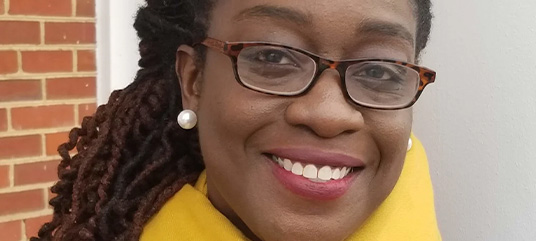Deborah Sampson Act: A Look Ahead for Women Veterans

In celebration of Women’s History Month, it is appropriate to spotlight the Deborah Sampson Act.
First, it is imperative to recognize the named honorary-Deborah Sampson- for her unwavering courage, persistence and steadfast devotion to women veterans and their families. Sampson successfully disguised herself as a man during the Revolutionary War and served in a light infantry unit. To prevent being detected, Sampson tended her own wounds, once removing a pistol ball from her thigh. She was detected after one and half years of service after falling ill.
Post-discharge, she petitioned Congress for disability pension benefits but was denied. With tenacity, in March 1802, Sampson lectured in Massachusetts, Rhode Island and New York advocating for disability pension benefits for women veterans and their spouses. Her trailblazing efforts were rewarded, and Congress approved the subsequent petition. As Sampson lit the torch advocating for gender specific benefits, it was catapulted forward by veterans service organizations and bipartisan politicians support that led to Congress passing this landmark legislation.
Today, women are the fastest growing number and most diverse demographic in both the military and veteran population. Though women have served since the Revolutionary War, access to medical and mental health benefits were not available until 1988. However, the VA healthcare system continues to have barriers to basic gender specific care and women do not receive equitable care or services. The Women Veteran Task Force, led by Congressman Julia Brownley, identified issues like longer wait times, sexual harassment by fellow veterans, staffing shortages, and facilities that failed to meet basic environment-of-care standards verifying the need for much needed change.
The Deborah Sampson Act, signed into law on January 5, 2021, significantly reduces difficulties to healthcare for women veterans and increases essential services to address issues like homelessness, harassment and assault, and child-care. Here are some of the highlights:
- Establishes the Office of Women’s Health at the Department of Veterans Affairs
- Ensures that gender-specific services are continuously available at every VA medical center and community-based outpatient clinic
- Requires the Secretary of Veterans Affairs to establish policy to end harassment and sexual assault, including gender-based harassment, at all VA facilities
- Expands counseling programs for women veterans and their families
- Improves newborn and child care by increasing the number of days of coverage for newborns, covering emergency transportation, and ensuring that veterans have convenient, cost-free child care options when they have VA medical appointments
- Authorizes grants to support low-income women veterans and increases resources for homeless women veterans and their families
In essence, equitable, quality gender-specific health care and benefits will now be available to the more than two million women veterans serving our country.
Malkia works as one our National Appeals Attorneys. She is a former educator who has a passion for advocating against injustices impacting the welfare of the public.